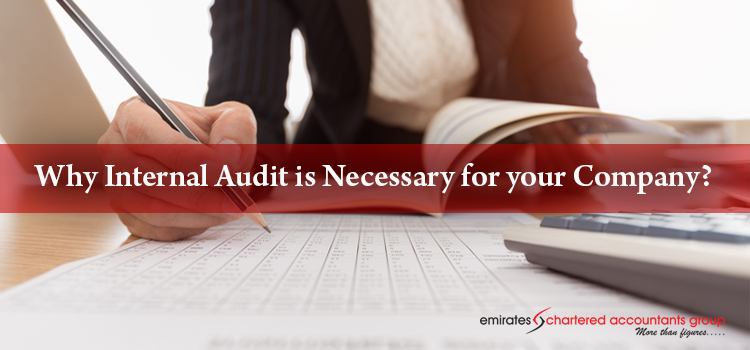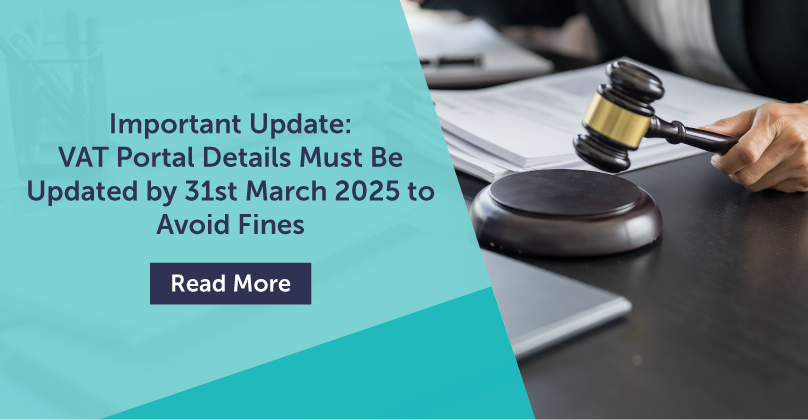
- Sep 04,2019
- All | Audit / IFRS
What is Internal Audit in Dubai?
As per the definition given by IIA (Institute of Internal Auditors)- Internal audit is to provide the independent assurance that an organization’s Governance- Internal control processes- Risk management are operating effectively.
In other words, we as financial auditors in UAE providing auditing service in UAE will help businesses to attain their objectives by adopting a systematic & disciplined approach to improve the effectiveness and efficiency of their business activities.
Now to help you understand Internal Audit in Dubai, let us understand How a Business or an Organization is formed?
An individual or set of individuals come together to execute their ideas and knowledge thereby to accomplish their dream of a successful business. Going ahead they realize that the business cannot run with ideas alone, so they decide to invest some money, hire other individuals (Employees), install machines, need to have customers, suppliers and other stakeholders which collectively results into Organization.
Further, they realize that for everyone to work in sync and for business to grow and prosper there should be processes and policies which defines the roles for each person in the organization.
This is how a Business or Organization operates. There are many interconnected functions/processes in businesses, and they all need to work in sync with each other resulting in the smooth flow of activities. It must be ensured that while working in sync the objectives are achieved in order to fulfill overall organizational goals.
Providing Auditing Service in Dubai UAE and while conducting an internal audit, it will help to monitor that the existing processes have properly functioned, and the controls set in place are operating effectively. It is never meant to monitor people but to monitor the overall working of the organization.
What are the three aspects of the Internal Audit which requires primary attention?
1.Governance:
Governance is a way of controlling and regulating the actions and tasks. In layman terms, Internal Audit is to check whether the defined structures, hierarchies, flow of information and systems are designed in a way to ensure transparency and accountability of duties and responsibilities at each level of organization.
It helps to ensure that the assigned duties are done effectively and efficiently. Internal Auditing is always about adding values by suggesting areas of improvements in an Organization.
Governance can have a different meaning for different people. So, it is important to have focus and clarity on what are an organization’s objectives. Clarity on goals and objective can help in developing a clear roadmap or directions to be followed in achieving them. It is of immense importance that governance should be strong as it is a strategic tool in controlling the activities.
There are many businesses with well-defined structures and hierarchies but still fails to sustain and achieve consistent growth. It is very important to record the reasons for such unsustainability. One of the reasons for such failure could be a lack of clarity and uncertain roadmap.
Governance plays a vital role in defining the roles and responsibilities in an organization, assigning the right job to right people is the key and the core of good governance. As the board of every company is the ultimately responsible group for its working & governance.
But this is possible only in case of big Companies so what about small organizations? In case of SMEs absence of a board, it is the owner, partners, directors or the key managerial person who are solely responsible for the governance of the business.
So, Internal Audit plays a very crucial role in assisting the board, Owners, Partners, Directors in exuding their governance and responsibilities. It should be always kept in mind that Internal Audit is not about finding people’s faults but it’s about protecting/safeguarding the assets of the company, sustainability of growth and constantly improving, adding value to the company. In Modern Internal Auditing the reporting structures have also undergone changes.
These days the Compliance, Risk & Audit functions must report directly to the committee or board and not to the CEO or MD. As their functional reporting to CEO & MD can result in conflicts of interests and biased opinions.
2.Internal Control Processes:
A process is generally defined as, a series of actions or steps taken in order to achieve a goal or a common objective.
Processes and procedures within the organization must provide clarity on Management’s intentions to achieve the objectives or goal. Every organization has multiple process and function for its smooth flow of activities. Internal controls are the nuts and bolts to these functions and process, so as to work in sync with each other.
It is very crucial to have in place the updated set of policies, manuals, and procedures as they serve as ready reckoner in the performance of one’s duties and functions. Further, these should timely undergo changes depending on the development of the industry and market conditions
No business these days is constant and cannot afford to be stubborn. Without the introduction of smart technology, Smartness lies in adapting to ever-changing needs and demands of the market. It is significant to concentrate that with an adaption of market needs, there should not be flaws in organization processes and functioning. Generally, internal controls can be grouped as Preventive controls, Detective controls & Corrective control.
Having Internal Audit helps to ensure that the market requirements are met along with the compliance in place. Generally, in businesses, we observe that the Sales and other compliance functions are not in sync.
The sales function is into getting more business sometimes even if it is in non-compliance with minimum requirements of law. Internal Audit helps in putting or defining the controls, rules, and mechanisms to avoid such cases. It helps in ensuring the integrity of financial and accounting records thereby preventing the occurrence of frauds and error.
In the case where such occurs, then control is put place to prevent the occurrence of the same in the future or bridge the existing gap which lead to the occurrence of such fraud.
3.Risk Management
When the work passes through different people (Levels of governance), various processes there always lies the possibilities or chances of gaps and loopholes. This results in the risk of fraud, errors &/or mistakes. Risk means exposure to the danger of harm to Business.
To deal with these risks a company needs to have Risk management in place. It is always recommended to adopt a risk-based approach. A risk-based approach means assigning the risk level to identified or probable errors or frauds. This can help management in designing proper risk management plans and strategies.
What is risk management?
Risk Management involves identification of gaps and loopholes in your existing business which needs timely evaluation or measurement of risk involved in such gaps. Further, these identified risks should be prioritized based on the company’s past experience, Management judgment and market situation in which they occur
. And then finally to identify or evaluate the efforts and the economical application of resources for mitigating risks involved. It simply means, to identify the risks involved in advance and to have a plan/ strategy in place to curb or reduce the effects of such risks when materialize.
What are the Steps Involved in Risk Management?
If you are looking for Audit & Assurance Services in the UAE, then you are in the right place. Emirates Chartered Accountants Group caters highly qualified professional in the related field of work by providing a wide range of Audit and assurance services all over UAE – Dubai, Abu Dhabi, Ajman, Sharjah, Fujairah & RAK
- Internal Audit
- Business Valuation
- Due Diligence Audit
- Investigation Audit
- IFRS Impact Assessment
- Company Liquidation
For Audit Services in Dubai:
Mr. Pradeep Sai
sai@claemirates.com
+971 – 556530001
For Audit Services in Abu Dhabi:
Mr.Navaneeth
nav@claemirates.com
+971 – 558892750
For Audit Services in Northern Emirate(Sharjah, Ajman, RAK, Fujairah)
Mr. Praveen
praveen@claemirates.com
+971 – 508873115




